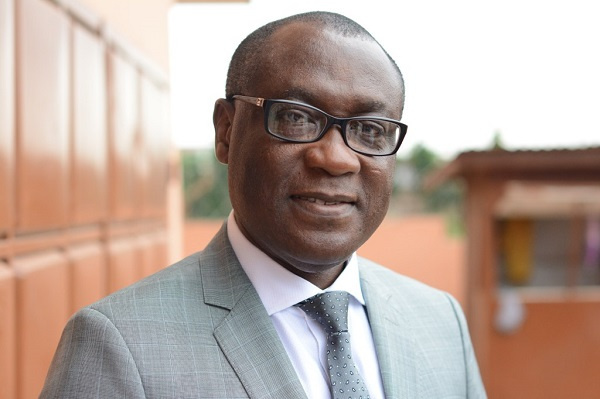The Chairman of the National Peace Council, Dr Ernest Adu-Gyamfi has stressed the need for Ghana to reinforce religious tolerance and peaceful coexistence, particularly in light of the looming threat of terrorism and violent extremism in the sub-region.
According to him, religious conflicts had had a major impact on global politics, often leading to violence and displacement, emphasising the long-lasting effect on society.
During the Third Dialogue and Peace Conference in Accra, themed "Faithful Discourse: Building a Peaceful World Together," Dr. Adu-Gyamfi advocated initiatives that foster mutual respect and understanding among individuals from diverse faith backgrounds.
The conference aimed at bridging gaps between different faiths, promoting respect for each other's beliefs, and seeking to alleviate tensions between religious groups to establish peace and reconciliation.
The Chairman pinpointed various domestic threats such as chieftaincy and ethnic clashes, farmer-herder conflicts, demonstrations, armed robberies, arms proliferation, drug trafficking, political polarization, vigilante groups, and the dissemination of hate speech through media platforms as fertile grounds for violent extremist actions.
Emphasising the priceless value of peace, Dr. Adu-Gyamfi underscored the necessity of nurturing it through love, unity, and tolerance for each other's faith.
On his side, the President of TUDEC Development Centre, Cafer Tepeli echoed the significance of diversity and equality, urging influential figures, particularly religious and political leaders, to set exemplary standards with their lifestyles for others to follow suit.
The Chairman of the Christian Council of Ghana, Right Reverend Dr Hilliard Dogbe highlighted that religious leaders were strategically positioned to contribute significantly to peace-building efforts and mitigate electoral and political violence.
“It is imperative that we do not take the peace we have for granted. Religious leaders need to be effective in playing their roles as peace promoters and understand their roles in conflict dynamics,” he added.
The Spokesperson for the National Chief Imam, Sheikh Aremeyaw Shaibu stressed the need for practical democracy based on core values like inclusivity, respect for human rights, equal opportunities, and respect for diversity in a religiously diverse country.
He underscored the potential for conflict due to hate speech, social divisions, and unequal wealth distribution and urged for mutual respect across religious lines to sustain a peaceful atmosphere.
The Omanhene of Esikado, Nana Kobina Nketsiah IV highlighted that peace is an active principle requiring justice and truth.
He cautioned against allowing divisions based on political, religious, or cultural differences, emphasising the need to identify sources of division and build enduring bridges between communities.
Latest Stories
-
Ghana’s Education Quality ranked 125 out of 183 countries in latest Global Youth Development Index
15 mins -
Emma Stone wants people to use her real first name
19 mins -
FIFA Club World Cup 2025: Sundowns, Esperance join Al Ahly and Wydad as CAF representatives
4 hours -
CAFCL: Al Ahly set up historic final with ES Tunis
4 hours -
We didn’t sneak out 10 BVDs; they were auctioned as obsolete equipment – EC
8 hours -
King Charles to resume public duties after progress in cancer treatment
9 hours -
Arda Guler scores on first start in La Liga as Madrid beat Real Sociedad
9 hours -
Fatawu Issahaku’s Leicester City secures Premier League promotion after Leeds defeat
9 hours -
Anticipation builds as Junior Speller hosts nationwide auditions
10 hours -
Etse Sikanku: The driver’s mate conundrum
10 hours -
IMF Deputy Chief worried large chunk of Eurobonds is used to service debt
11 hours -
Otumfuo Osei Tutu II celebrates 25 years of peaceful rule on golden stool
11 hours -
We have enough funds to pay accruing benefits; we’ve never missed pension payments since 1991 – SSNIT
11 hours -
Let’s embrace shared vision and propel National Banking College – First Deputy Governor
12 hours -
Liverpool agree compensation deal with Feyenoord for Slot
12 hours

